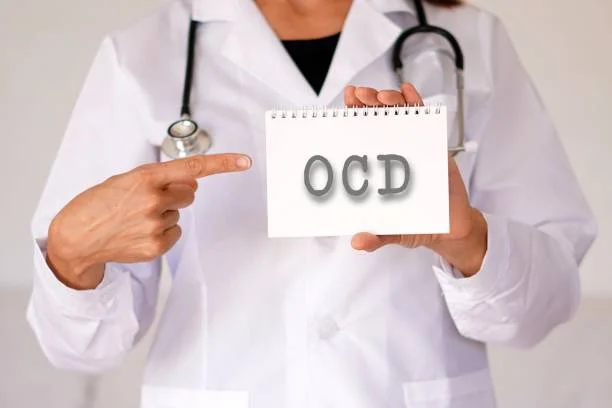Finding effective care for obsessive-compulsive disorder can be a life-changing experience. Many individuals struggle for years before discovering the relief that structured therapy and professional guidance can bring. Those who seek help at specialized OCD treatment centers gain access to tailored programs designed to reduce intrusive thoughts and compulsive behaviors. These centers focus on holistic recovery—helping patients regain control over their lives through therapy, education, and ongoing support.
Understanding OCD and Its Impact
Obsessive-compulsive disorder is a complex mental health condition characterized by persistent, intrusive thoughts and repetitive actions intended to ease anxiety. While everyone experiences occasional worries or routines, OCD can become debilitating when these patterns interfere with daily life. The constant need for reassurance or ritual can lead to isolation, exhaustion, and distress. In this context, professional treatment becomes essential. By seeking help through OCD treatment centers, individuals can understand their triggers, learn coping strategies, and regain balance. Education plays a key role, as understanding the condition often helps reduce shame and fosters motivation for recovery.
Dig deeper — discover related content that adds context and insight.
The Importance of Professional OCD Treatment
Attempting to manage obsessive-compulsive behaviors alone can feel overwhelming. While self-help tools can offer temporary relief, lasting recovery typically requires structured therapeutic intervention. Professional care ensures that treatment is evidence-based, consistent, and guided by trained clinicians who understand the nuances of the disorder. Within OCD treatment centers, patients benefit from a combination of therapy, medication management, and peer support. This integrated approach helps individuals address both the emotional and behavioral components of OCD. Moreover, professional programs encourage accountability and provide a sense of community—key factors that sustain progress beyond treatment.
Therapeutic Techniques Used in OCD Treatment Centers
A variety of therapeutic techniques are employed in OCD treatment centers to address the root causes of obsessive and compulsive behaviors. The most widely recognized approach is Cognitive Behavioral Therapy (CBT), particularly a method called Exposure and Response Prevention (ERP). This involves gradually confronting feared situations without engaging in compulsive rituals, which helps retrain the brain’s anxiety response. Other approaches include Acceptance and Commitment Therapy (ACT), mindfulness-based interventions, and trauma-informed care. These therapies help patients gain awareness of their thought patterns while developing tolerance to uncertainty. Over time, these techniques empower individuals to break free from the cycle of fear and compulsion that defines OCD.
Cognitive Behavioral Therapy for OCD Management
CBT has long been considered the gold standard in OCD treatment. Within structured therapy sessions, individuals work to identify irrational beliefs and replace them with realistic, balanced thoughts. This process reduces the power of intrusive thinking and diminishes the urge to perform compulsions. Therapists guide patients in real-world exercises that build confidence and self-regulation. For many, the process is gradual yet transformative. The ultimate goal is not to eliminate anxiety entirely but to help individuals coexist with discomfort in healthier ways. By understanding their triggers and responses, patients gain practical tools for long-term symptom management. In many OCD treatment centers, CBT is paired with ERP to maximize results and promote sustainable healing.
Role of Medication in OCD Treatment
While therapy remains the cornerstone of OCD recovery, medication can be an important component for many individuals. Selective serotonin reuptake inhibitors (SSRIs) are commonly prescribed to help regulate mood and reduce obsessive thinking. Medication helps calm the nervous system, making therapy more effective by allowing patients to engage more openly in the treatment process. Psychiatric support within OCD treatment centers ensures that dosages are carefully monitored and adjusted based on progress and side effects. The goal is not dependency but balance—using medication as a tool to manage symptoms while developing the coping skills needed for long-term success. The collaboration between therapists and psychiatrists ensures a comprehensive approach to mental health stabilization.
Family Involvement in OCD Treatment Centers
OCD does not only affect the individual experiencing it—it impacts families, relationships, and overall home dynamics. Recognizing this, many OCD treatment centers include family education and involvement as part of the recovery process. Families learn how to respond constructively to symptoms rather than reinforcing compulsive behaviors. They are taught communication strategies that foster empathy and patience, helping to rebuild trust and support networks. This involvement also helps loved ones understand that OCD is a medical condition, not a matter of willpower or personal choice. Through workshops, family therapy sessions, and educational materials, treatment centers ensure that the recovery journey becomes a shared effort rooted in understanding and compassion.
Creating a Supportive Environment for OCD Recovery
The environment within OCD treatment centers plays a crucial role in recovery. A structured, compassionate setting encourages patients to feel safe while confronting their fears. Daily routines are designed to promote consistency and stability, reducing the chaos often caused by obsessive thought patterns. Peer groups provide opportunities for connection, helping individuals realize they are not alone in their struggles. These interactions often become an essential source of motivation, as witnessing others’ progress reinforces the possibility of healing. Moreover, many centers incorporate wellness activities such as mindfulness, meditation, exercise, and art therapy to complement clinical treatments. These holistic elements nurture both emotional and physical well-being, supporting recovery from multiple angles.
Conclusion: Building a Life Beyond OCD
The path to recovery from obsessive-compulsive disorder is not always straightforward, but it is achievable with the right guidance and support. Through a combination of evidence-based therapies, medical management, and compassionate care, individuals can learn to manage their symptoms and reclaim their independence. The journey begins with acknowledging the need for help and taking the brave step toward professional care. Specialized OCD treatment centers provide the tools, environment, and expertise necessary to overcome the challenges of this condition.For anyone seeking expert support and compassionate care in their healing journey, Treat Mental Health Washington provides comprehensive OCD treatment programs designed to help individuals find freedom and peace beyond their struggles.
Beyond the page — discover more stories that challenge and inspire you.

